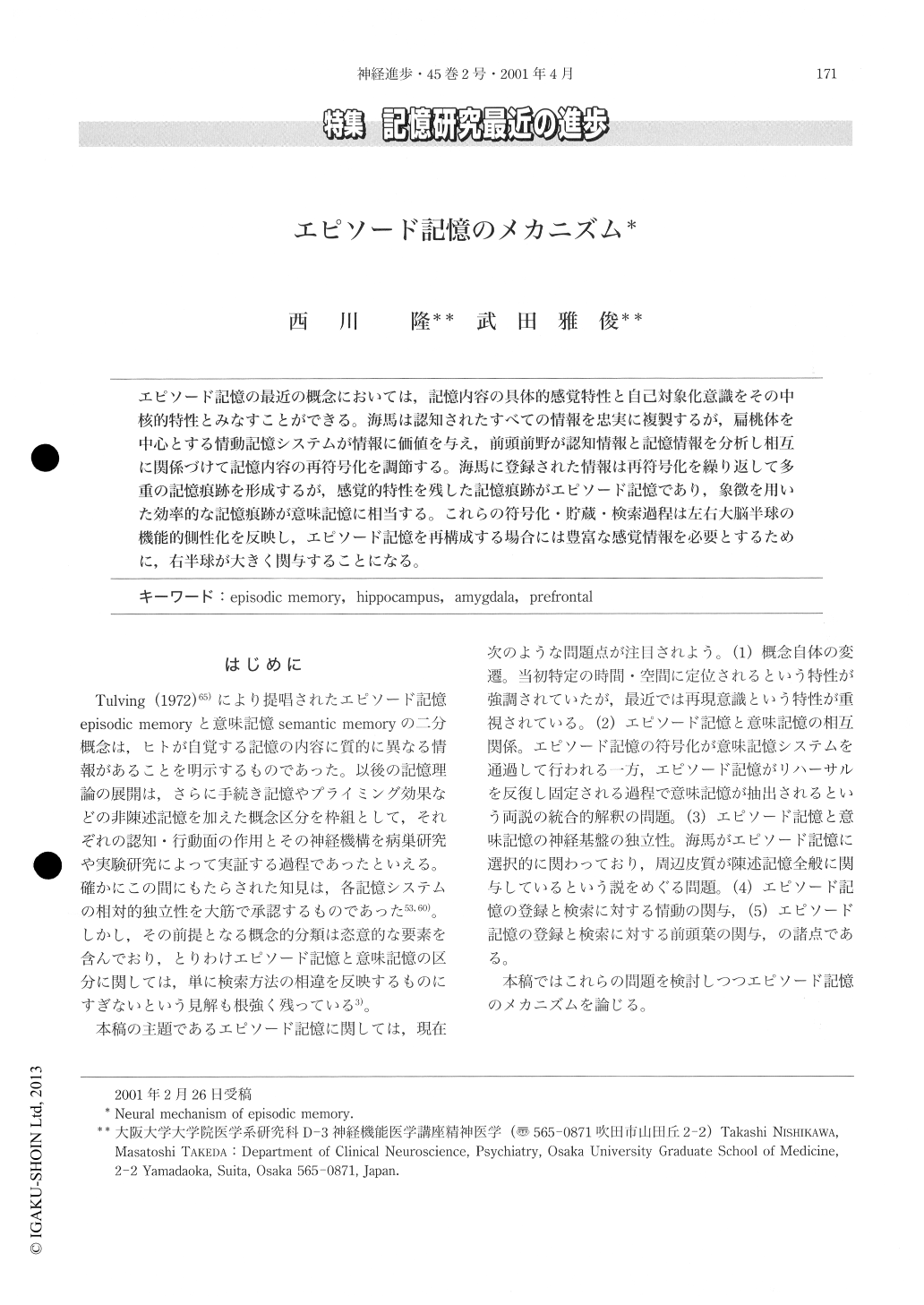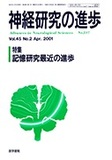Japanese
English
- 有料閲覧
- Abstract 文献概要
- 1ページ目 Look Inside
エピソード記憶の最近の概念においては,記憶内容の具体的感覚特性と自己対象化意識をその中核的特性とみなすことができる。海馬は認知されたすべての情報を忠実に複製するが,扁桃体を中心とする情動記憶システムが情報に価値を与え,前頭前野が認知情報と記憶情報を分析し相互に関係づけて記憶内容の再符号化を調節する。海馬に登録された情報は再符号化を繰り返して多重の記憶痕跡を形成するが,感覚的特性を残した記憶痕跡がエピソード記憶であり,象徴を用いた効率的な記憶痕跡が意味記憶に相当する。これらの符号化・貯蔵・検索過程は左右大脳半球の機能的側性化を反映し,エピソード記憶を再構成する場合には豊富な感覚情報を必要とするために,右半球が大きく関与することになる。
In the original concept of episodic memory proposed by Tulving (1972), the feature that the contents of this category of memory are bound to particular places and particular times was regarded most important. Then, the term “episodic memory” was often used almost as a synonym of “autobiographical memory”. Recently, however, Tulving and his colleagues have developed their theory on the basis of their hierarchical evolution model of memory systems, and are currently claiming that re-experience, “mental time travel” according to their expres-sion, is the crux of the properties of episodic memory.

Copyright © 2001, Igaku-Shoin Ltd. All rights reserved.


